On April 16, 2021, students of the Tsinghua PBCSF Belt and Road Initiative (BRI) EMBA Program participated in an alumni-enterprise study trip focused on the New Economy and sci-tech innovation, visiting Pop Mart, the largest and fastest-growing pop toy company in China, and Gaorong Capital, a venture capital firm that focuses on early and growth stage investments in TMT. Dr. Wanli Min, Founder and CEO of North Summit Capital and Quadtalent gave a talk on artificial intelligence (AI) and the Belt and Road Initiative after the company visits.
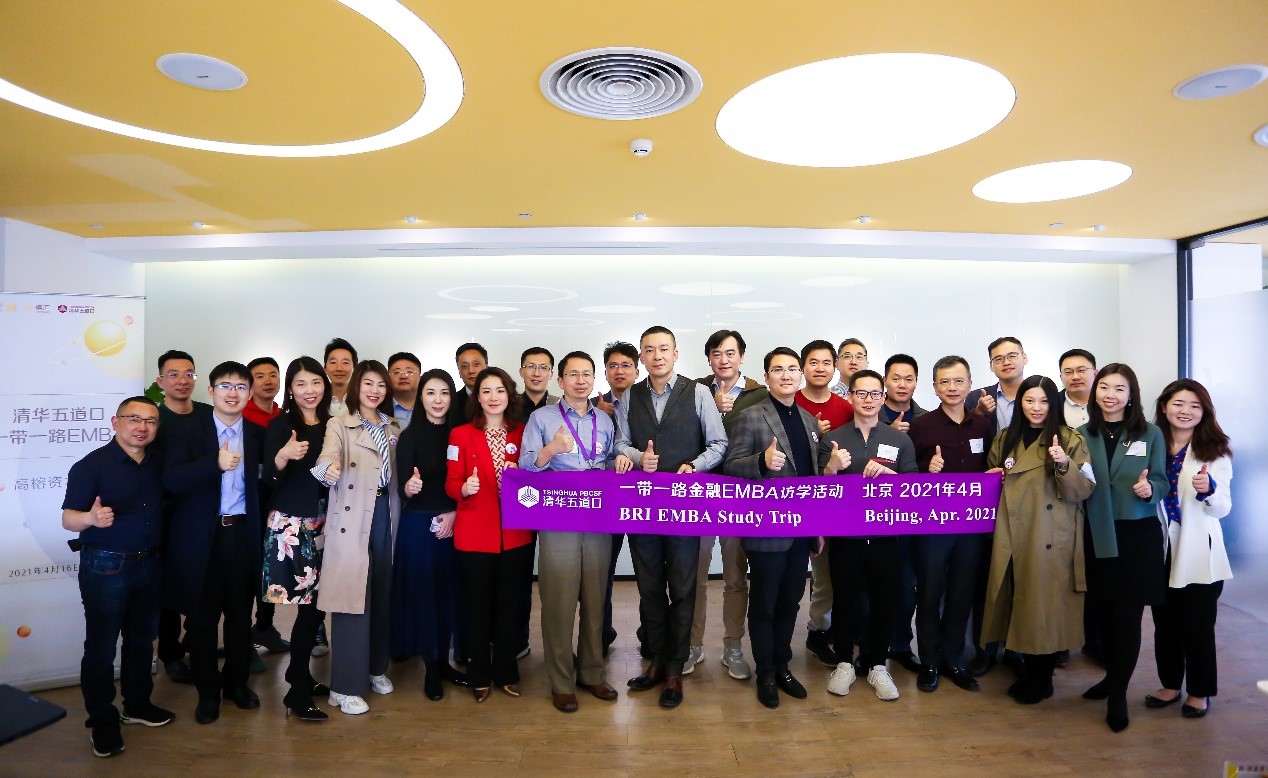
Dr. Wanli Min discussed the value of industrial intelligence through personal experience and detailed case studies. Formerly Chief Machine Intelligence Scientist of Alibaba Cloud and presently a technology innovation pioneer who spearheads industrial intelligence, he has worked as a researcher in IBM and Google successively. He is now the founder and CEO of North Summit Capital, an investment firm focused on the digital transformation of traditional industries.
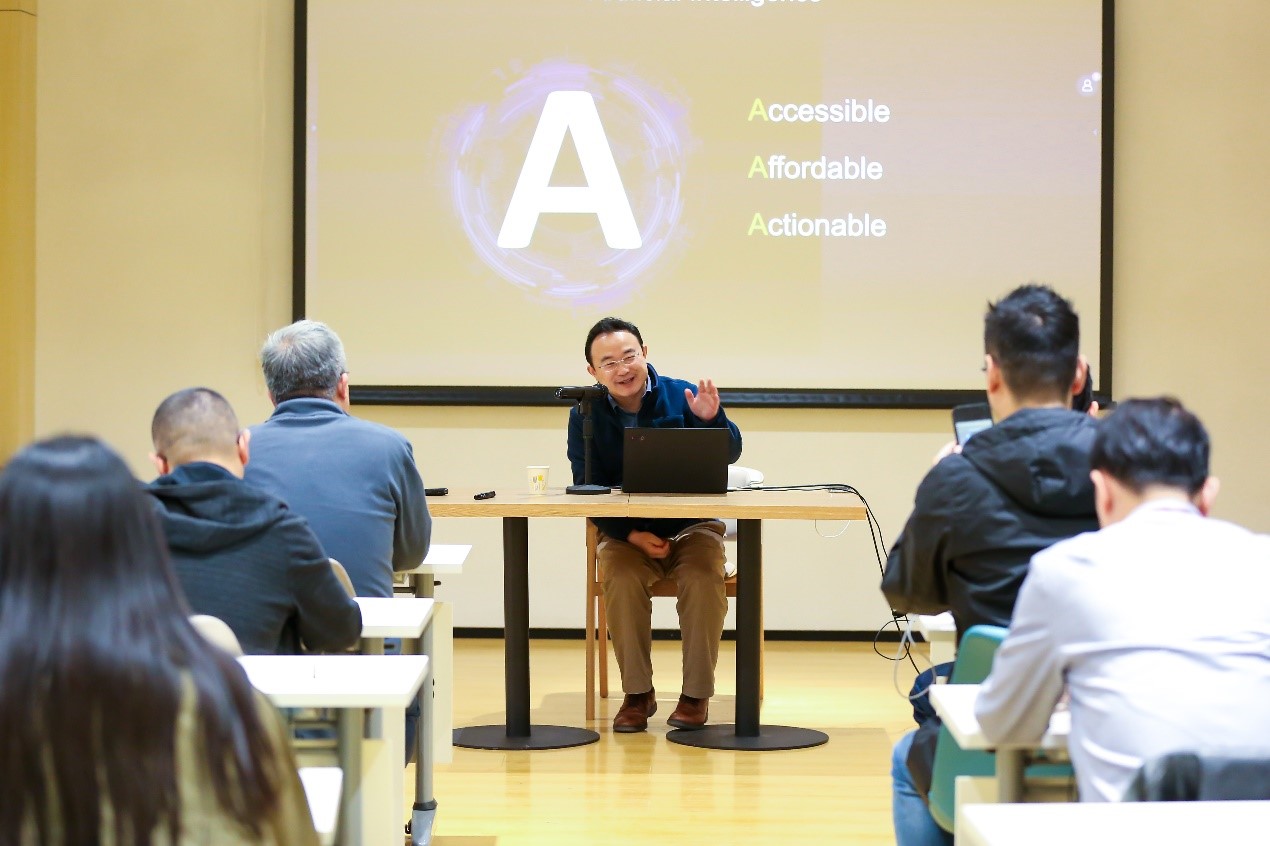
Dr. Wanli Min
Dr. Wanli Min said that the ongoing fourth industrial revolution is led by big data, cloud computing, artificial intelligence and other underlying technologies, providing a new source of productivity -- computing power. The combination of the third and fourth industrial revolutions, i.e. "computing power + data", serves as an unprecedented industrial impetus. This is a comprehensive intellectual revolution, breaking the limits of human intelligence and giving everything on the Internet the ability to “think”.
In this context, Dr. Wanli Min redefined artificial intelligence. In his opinion, “AI” in the new era will be less “A” (artificial) and more “I” (intelligent). What is more, “A” should also cover concepts such as actionable, accessible, and affordable, because the key to AI is to create value in the industry.
Enterprises will face a variety of uncertainties during industrial upgrading, and the application of AI in the industry is more about the utilization of comprehensive technology and intelligence. Integrating a wealth of practical cases and personal experiences of smart city, intelligent manufacturing and other scenarios, Dr. Wanli proposed a formula: "Value = f (data, sci-tech, industry knowledge)". In order to create value using AI, he suggests companies follow these steps: "the datafication of business pain points; the monetization of technology anchors; the serialization of inflection points." In scenario selection, it is necessary to have a sharp focus -- first vertical and then horizontal. Instead of trying to solve every problem at the same time, it is better to focus on a pain point that can evidently inject value into the company’s financial report. In particular, early AI entrepreneurs should not talk about platform too soon, or mention horizontal integration and ecosystem too readily.
At Pop Mart, Vice President Ran Liu, who is the third employee of the company, spoke on their decade of entrepreneurship, and introduced the company’s operation and consumer insights. She pointed out that Pop Mart aims to build an integrated platform of art and business covering the whole industry chain of pop toys, and tap the “blue ocean” of domestic games through the four core businesses of global artist discovery, IP operation, consumer access and pop toy culture promotion. At present, the company's various products are fervently loved by young consumers aged 15-35, especially female consumers.
Explaining young consumers' preference for trendy toys, Ran Liu said that first, time fragmentation leads to changes in the IP formation logic, resulting in the rise of trendy IP with relatively low cost of time. Secondly, as young people's values become increasingly diversified, they are no longer guided by a single mainstream value; rather, they need a new artistic carrier.
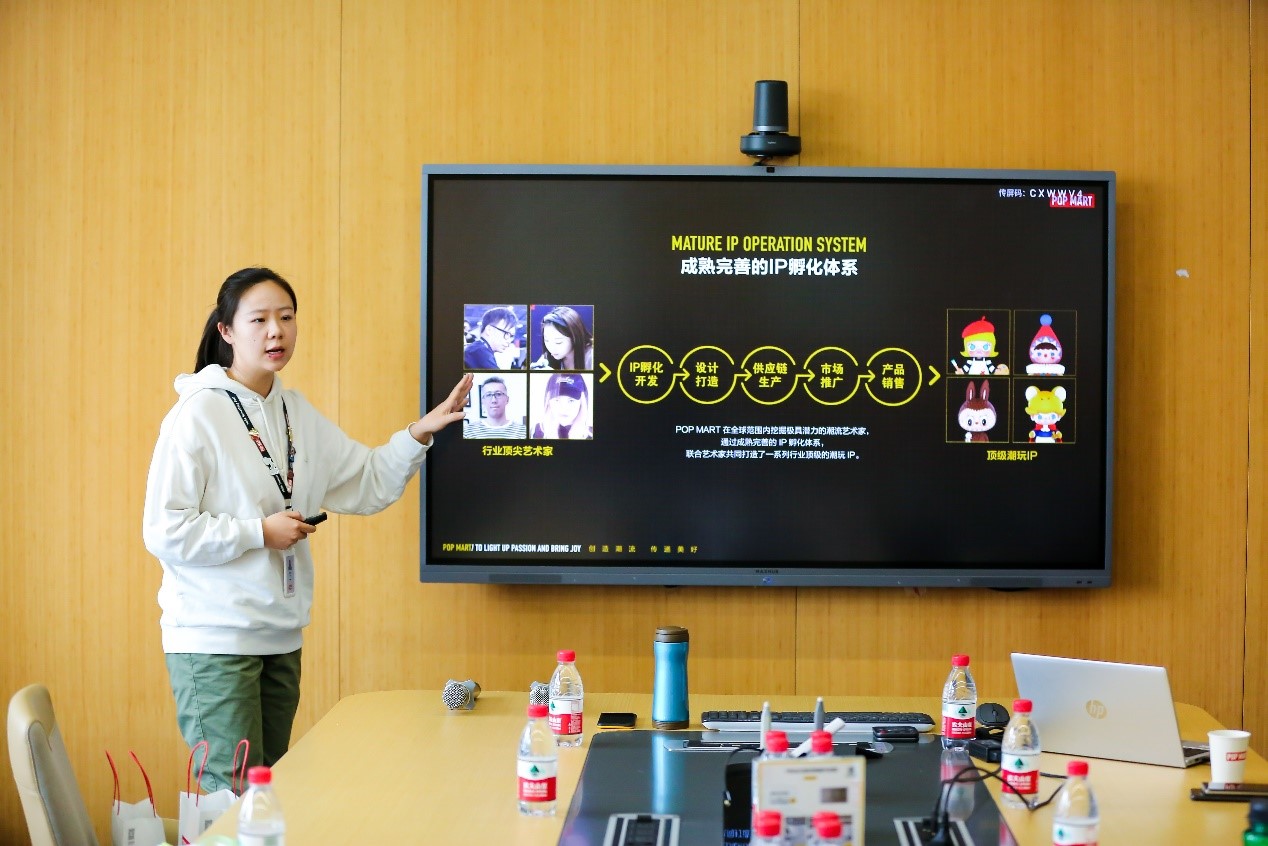
Ran Liu, Vice President of Pop Mart
At Gaorong Capital, Wei Xin, Tsinghua PBCSF Finance EMBA alumnus and Partner of Gaorong Capital, warmly welcomed the students. He addressed Gaorong’s investment methodology and put forward the concept of "Seven Embraces" – 1. Embrace the pulse of the times, pay attention to the change of global competition pattern and the online migration of individuals and enterprises in the digital age; 2. Embrace the new demands brought by the change of intergenerational population structure and the opportunities in the new development stage and new development pattern of the country; 3. Embrace scientific and technological innovation; 4. Embrace long-termism under the mega-trend; 5. Embrace outstanding entrepreneurs; 6. Embrace in-depth research; 7. Embrace industry and ecological resources.
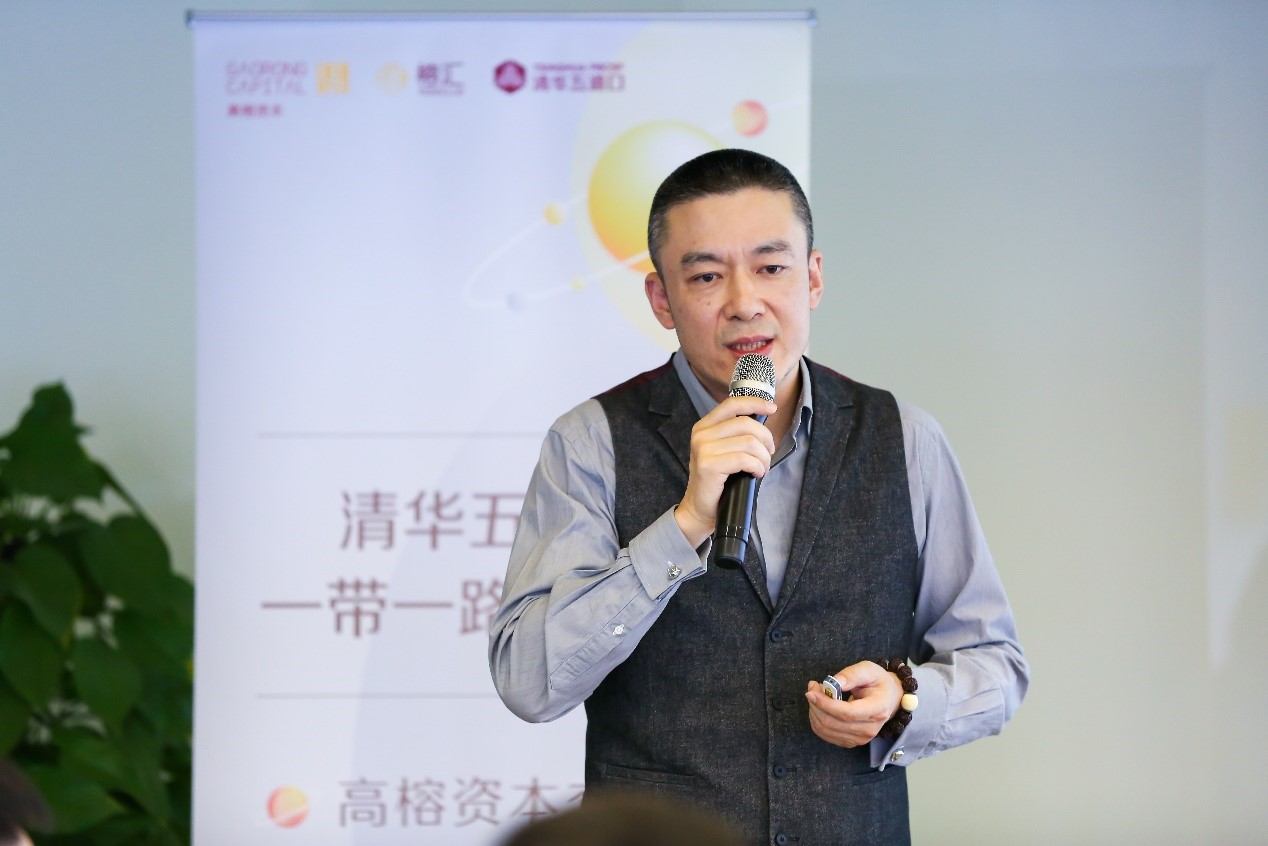
Wei Xin, Tsinghua PBCSF Finance EMBA alumnus and Partner of Gaorong Capital
Binjie Fei, an alumnus of Tsinghua PBCSF’s Master of Finance Program and Founder of Value Simplex, shared his thinking of finance and digital industry with the students. Value Simplex is a technology company committed to creating a one-stop data intelligent platform for financial institutions. Partnering with more than 50 financial asset management institutions such as China AMC, Harvest, CICC and CITIC, the company has years of experience in providing digital solutions for the asset management industry. Fei shared his advice on the digital-intelligent transformation of enterprises:
- Focus on platform construction, and break up data islands of all departments;
- Turn the internal and external information communication between various departments of the company into API services to avoid reinventing the wheel;
- Improve development efficiency through rapid iterations, visual boards, and OKR management;
- Focus on the construction of a talent culture and talent management system, from passive order taking to active innovation, emphasizing the integration of business and technology;
- Start with quick, small and specific scenarios, quickly iterate, form positive feedback, and gradually expand the coverage of digital intelligence upgrade scenarios;
- Establish an open partner ecology, learn from others' strengths, and avoid doing things behind closed doors;
- Technical architecture selection should be forward-looking to avoid repeated reconstruction.
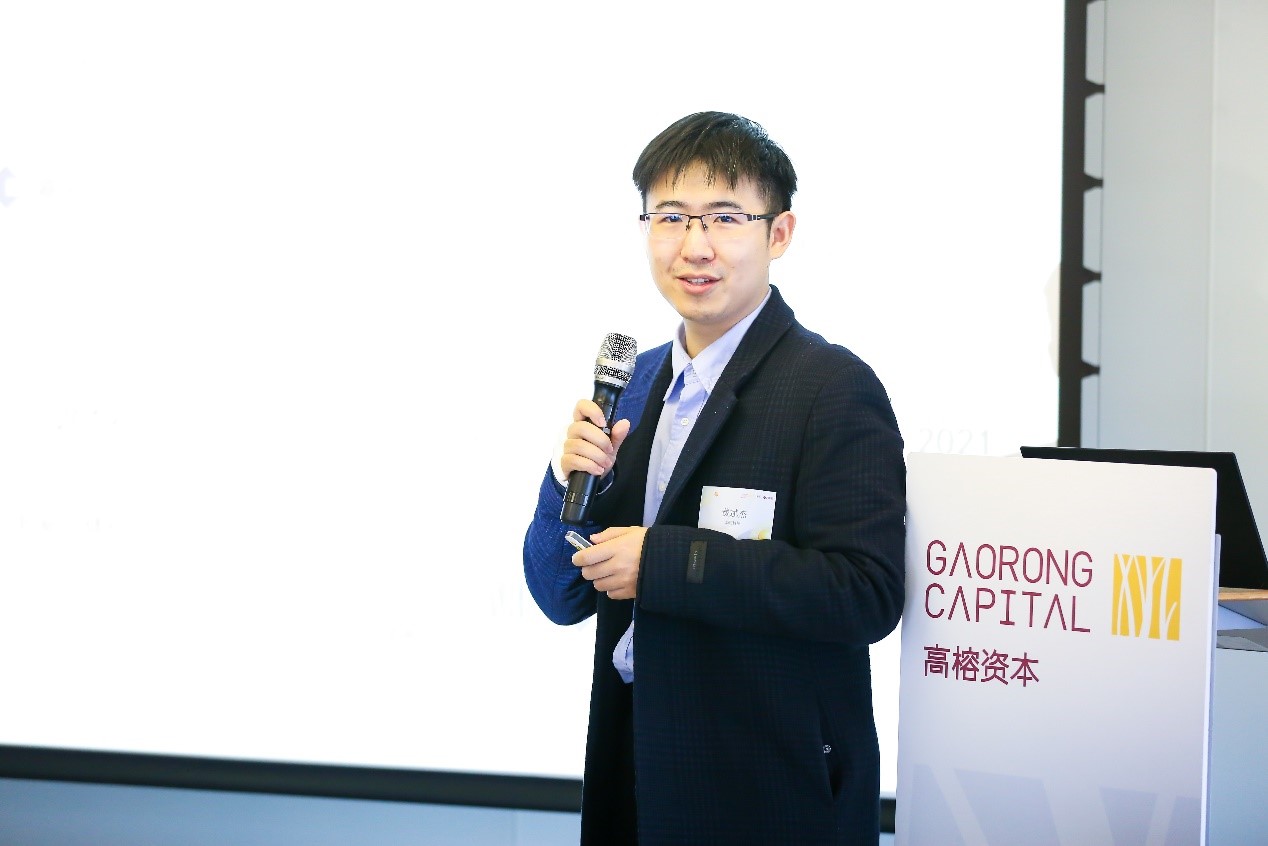
Binjie Fei, an alumnus of Tsinghua PBCSF Master of Finance Program and Founder of Value Simplex
First launched in 2017, the BRI EMBA Program adopts an educational approach that is closely aligned with the demands of China’s Belt and Road Initiative. One of the most sought-after EMBA programs in the Asia-Pacific region, the BRI EMBA Program brings together domestic and world-renowned professors, scholars, and outstanding leaders in various fields of the financial industry for the cultivation of industry-leading talents and innovators with international vision and pioneering spirits.
The Program has so far attracted more than 180 high-level enterprise decision-makers from 22 countries and regions, including Singapore, Indonesia, Malaysia, Thailand, the United States, Canada, Kyrgyzstan, Kazakhstan. A number of students from Southeast Asian Countries hold Tan Sri, Dato' Sri, Dato’, Tengku and other honorary titles. Nearly 40% of the students graduated from world-renowned universities such as MIT, Stanford, Harvard, Yale, Cornell, Oxford, Cambridge and Imperial College London.